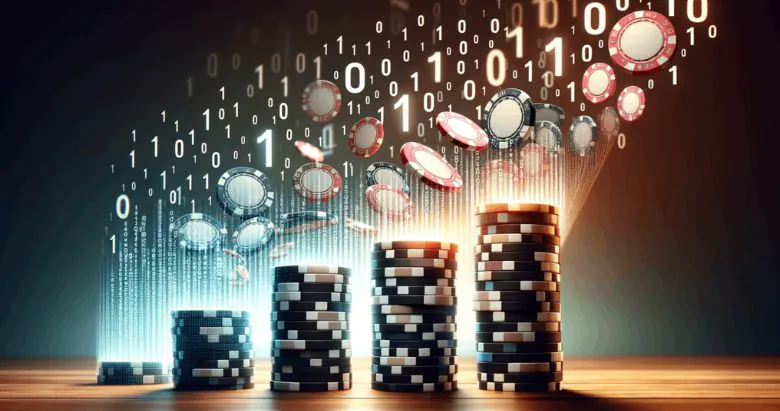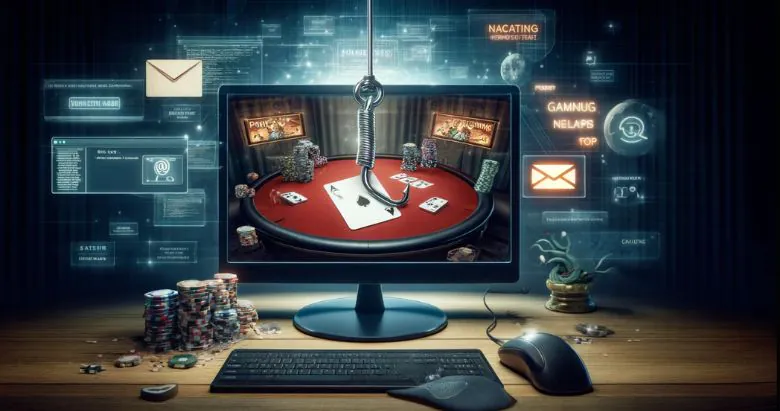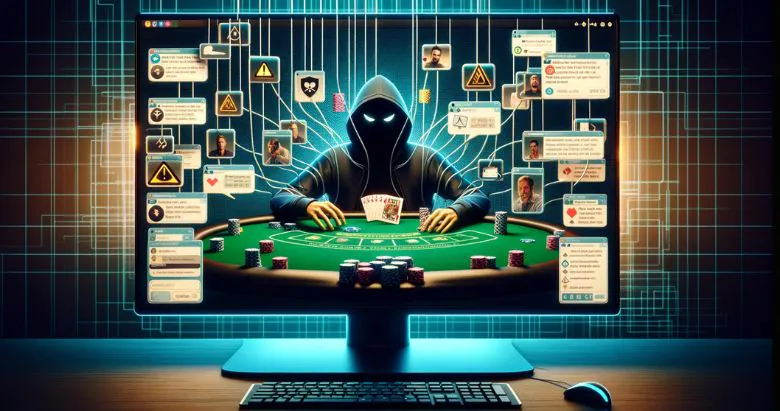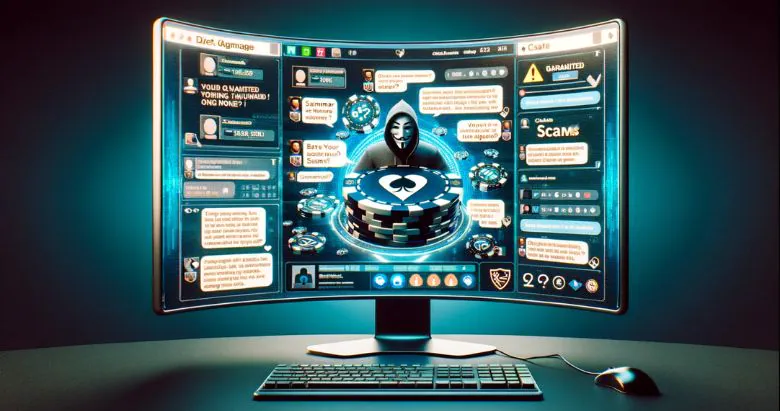Popular Scams Against Poker Players in 2025

- Fact Checked by: PokerListings
- Last updated on: November 5, 2024 · 4 minutes to read
Poker scams are an evergreen topic for the community. Still, in 2024 poker players can also be targeted by people who don’t even have the slightest knowledge of the game.
So, if you want to protect your accounts and private information from scammers, you need to be aware of these fraudulent schemes. In this article we describe three of the most popular scams targeting poker players in 2024, as well as the best ways to protect yourselves from them.
Table of Contents
Why Are Poker Players So Attractive to Scammers?
Transactions on public platforms, boasting after significant victories, or even deep runs and selling shares on social media are just some of the top reasons for scammers to have an eye on poker players.
A no less important reason is players’ own carelessness when it comes to the security of their personal information. You can’t imagine a better hunting ground for scammers than chats on Twitch, YouTube, and other streaming services, where people willingly publish their emails, nicknames and usernames on different websites. They even share their payment information and sensitive information with complete strangers.
The First Scheme: Phishing, Only You’re the Fish
In the simplest of terms, phishing or fishing is a scam of sending multiple fraud emails.
The most common tactics of phishers in the poker world is sending messages such as:
- Poker Room Pseudo-Newsletters
- Poker Room Support Services
- Payment Platforms
- Crypto Exchange Services
- Famous People from the Poker World
The point of these emails is to extract valuable information by mimicking certain services or people.
As an example, in February 2024 Patrick Howard aka Mobius Poker published a scam alert on X (former Twitter), after a phishing attempt disguised as a letter from Ignition Casino
SCAM ALERT
— Mobius Poker (@mobiuspoker) February 7, 2024
Heads up to anyone with an Ignition account, there is a phishing scam circulating
After you respond to the initial email, the hackers will send you a link which downloads malware
Always be careful about clicking links or submitting sensitive information via email! pic.twitter.com/hs1NxnPS6g
8 Signs of Phishing
Based on the letters from Patrick Howard and an analysis from the USA Federal Trade Commission, we can identify the following signs of phishing letter:
- It convinces you of an emergency regarding your personal or financial information
- It has email addresses similar to official ones
- It informs you of suspicious activity through embedded links
- It alerts you to inconclusive problems regarding your account
- It asks you to accept transactions with unknown parties
- It offers you compensation claimed only by following a provided link
- It demands emergent payment
- It demands a download or update
How to Identify Phishing?
- Do not open suspicious messages
- Cross-check the sender’s address
- Activate the anti-phishing option in your antivirus software
- Enable multi-factor authentication
- Create a strong passwords and change it regularly
- Do not open pop-up notifications
The Second Scheme: P2P Deals With a Surprise
Cryptocurrency expansion into the poker world forced a lot of players to find ways to convert their assets while avoiding third parties like centralized crypto poker exchanges, payment services or swap platforms. As a result, peer-to-peer (P2P) deals became essential to players and with that to scammers lurking for inexperienced people.
Peer-to-peer scams have become so sophisticated that even experienced players may fall into a false deal, without even realizing they’ve been deceived.
How to Identify a P2P Scam?
- A seller/buyer offers to leave the platform of the initial deal: You begin a deal on Binance, but your contact asks you to go to a different website
- You receive less funds than defined: For Instead of 100,000 LTC, the other party sends you 10,000 LTC in the hopes you will not notice the difference
- The other party cancels the transaction after you have already sent the payment
- Usage of forged checks or other documentation
- Deviation between the listed terms and final terms
How to Protect Yourself From P2P Scams?
- Attentiveness
- Cross-check all payment details beforehand.
- Never agree to leave the primary platform
- If possible, use payment methods without the option to cancel operations unilaterally.
- Do not trust checks and payment documents
- Do not confirm a deal before receiving payment
- Do not agree to send your payment to any other addresses except those specified in the terms of the transaction
The Third Scheme: DMs From Friends of Your Friends
The last scam that gained enormous popularity on X (Twitter) is fraudulent Direct Messages (DMs). In this case, the most common scenario is getting messages from an unknown individuals who introduces themselves as friends, colleagues, relatives or acquaintances asking for help.
The kinds of help vary from directly requesting financial aid to more indirect suggestions to make a transaction or take a survey. While the last suggestion appears harmless, in reality, it’s used to gain access to personal information.
More capable scammers could even hack your friends’ accounts and use them to request funds without raising suspicion. They can also threaten to make your personal information or photos public. On the other hand, more creative scammers like to use the formula of “Celebrity Needs Your Help” — where they create fake accounts of well-known people, using their influence to request money.
How to Identify a DM Scam?
- There is not chat history with this person
- The person does not answer direct questions
- The person does not show evidence of possessing of your personal information but threatens to expose it
How to Protect Yourself From DM Scammers?
- Never reply to an unknown person
- If you receive DM from a friend with a financial request connect them on another platform to confirm
- Do not hesitate to ban suspicious people
- Do not open attachments from unknown people
- Do not fall for threats — report them to the platform
Stake.US Poker
T&Cs Apply | Play Responsibly | GambleAware
18+ | Play Responsibly | T&C Apply
-
- 100% up to $2000
T&Cs Apply | Play Responsibly | GambleAware
18+ | Play Responsibly | T&C Apply
-
CoinPoker4.1
- 33% Weekly
- 150% up to 2000$
T&Cs Apply | Play Responsibly | GambleAware
+18 / T & C apply / Play responsible
-
Stake.US Poker4.3
- Rakeback 5%
- $55 Stake Cash + 260K Gold Coins
T&Cs Apply | Play Responsibly | GambleAware
18+ | Play Responsibly | T&C Apply
-
- 100% up to $1000
T&Cs Apply | Play Responsibly | GambleAware
T&Cs Apply | Play Responsibly | GambleAware
-
T&Cs Apply | Play Responsibly | GambleAware
18+ | T&Cs Apply | Play Responsibly | GambleAware






